Dried beans are a pantry staple in my kitchen, but not a lot of people cook beans from dried! Not only is it more convenient to open a can and reheat it, but many people are intimidated by cooking beans from dried. I'm not sure why exactly because it really is simple! Dried beans are so superior to canned beans that it is worth the effort to learn how to do it.
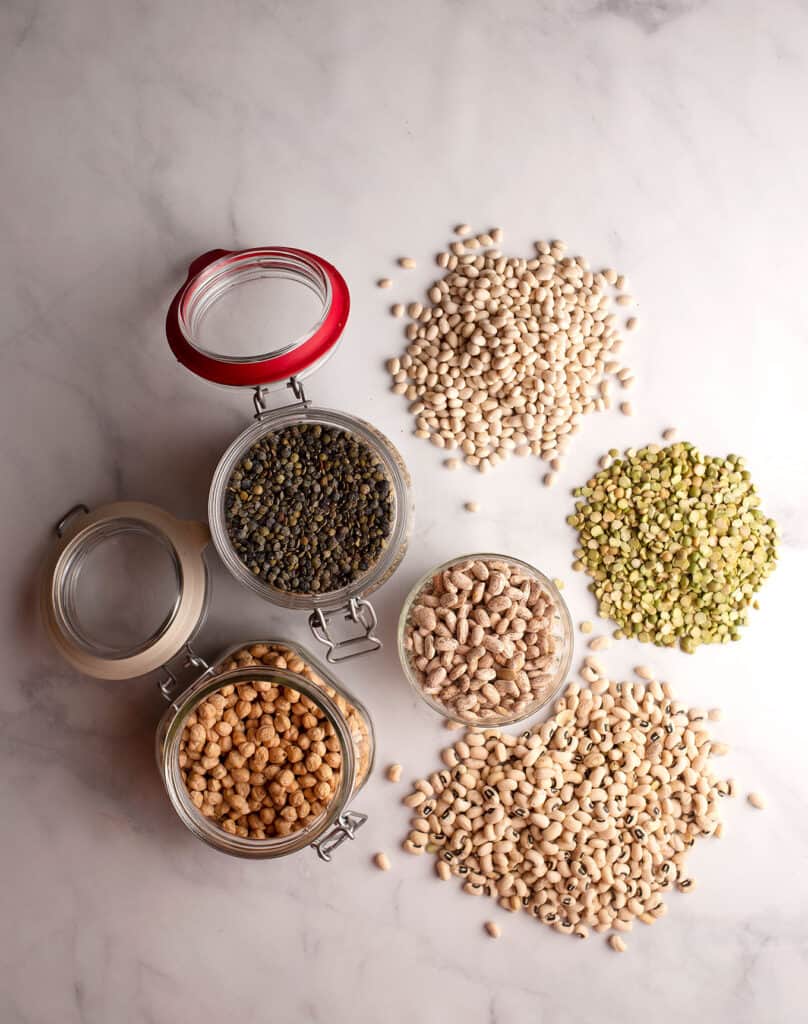
WARNING: This post is simply a list of questions and my answers to them. I'll reward you at the end with some photos and recipes to use dried beans in!
Why dried beans?
- They last a long time so you can always have them on hand without much worry of spoilage.
- They have better texture and flavor than canned beans.
- They are creamier inside, but not mushy.
- They are cheaper than canned beans.
- If you buy from the bulk section, there's less waste. Be sure to use refillable containers or bags!
To soak or not to soak
DEFINITELY soak! This is the thing that makes most people not want to use dried beans because it takes time. But that's exactly why you need to do it ... the time soaking helps digestibility, breaks down the phytic acids (which allows more absorption of the minerals into your body), breaks down the sugars, and helps remove contaminants.
It does take time so planning ahead is necessary, but the "work" of soaking takes such little time! You just rinse the beans, then put them in a large bowl or pot, cover them with water (like 3 times as much water as beans), and leave them alone. Some people put them in the fridge while they are soaking, but I don't really see the point in that. Unless you live in a very hot climate and don't have air conditioning. Then I could see it. And then once they are soaked and you start them cooking, it's again hands off.
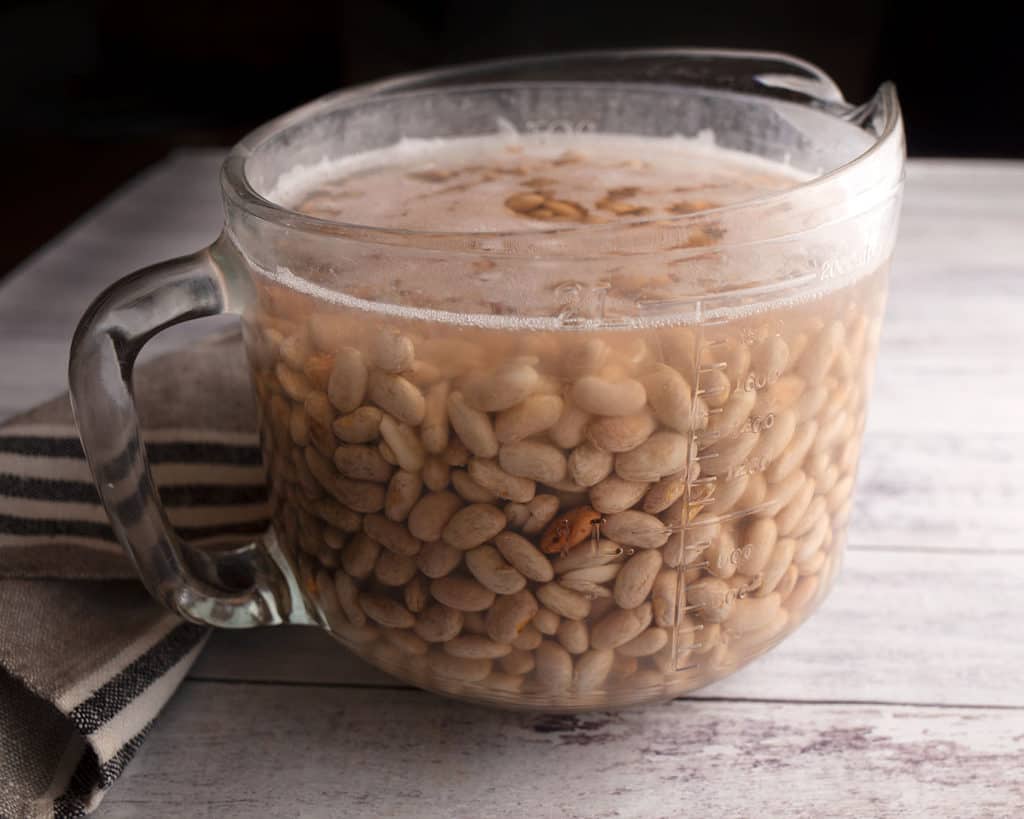
What about the Quick Soak method?
What about it? OK, so let's explain the Quick Soak before I destroy its worth. The Quick Soak is where you rinse your beans, cover them with water in a large pot, bring them to a boil, then cover the pot and leave the beans sitting for a half hour before proceeding with your recipe.
I mean, it doesn't do the same thing nutritionally to the beans, but it does help with the cook. So if the soaking thing isn't a nutritional decision for you, go ahead and do the quick soak. If you are a meal planner, (and you ARE even if you are just planning dinner for that evening!), then you'll know whether you need beans for your evening meal or not, right? So just put them in to soak in the morning and leave them for at least seven or eight hours.
Will you destroy the Hot Soak, too?
Nope, but I simply don't see the point. A Hot Soak is where the beans are brought to a boil, then, covered and soaked ... hot. For the same amount of time as a cold soak. So again ... what's the point?
How long should beans soak?
It totally depends on the bean, but most benefit from a minimum of 8-12 hours. Most will absorb the maximum amount of water in that amount of time. That said, I've left beans for 2 days before with no problems. If you have to leave them longer than 8-12 hours, drain them and put them in fresh water. Preferably filtered water. Leaving them in the same water will cause them to start fermenting ... not exactly what we're going for!
Do I rinse after soaking?
Yes! The phytic acids, complex sugars, and contaminants are not welcome at this bean party! Refer to the "To soak or not to soak" paragraph above. Fresh, clean water always.
Salt before or after cooking?
This question gets so much attention in the discussion of cooking dried beans! But I have the answer on good authority. I mean, I don't want to name drop or anything, but if I did, his name would be one you might recognize.
If there's ever a mantra in cooking, it has to be, "Season well!" And while that is absolutely true, there's an addendum to the mantra when you cook beans. You shouldn't salt beans until they are cooked. Salting before and during makes them tough. But AFTER they are cooked, they'll need a hefty dose so don't be stingy.
Do you recommend certain brands?
Not really because I usually buy in bulk at my local grocery store (not a chain). They allow customers to bring their own containers as well to reduce plastic use. I have always heard good things about Rancho Gordo if you're looking for mail order.
Other than that, I always look for where the beans come from and if they are organic. I'm a big cheerleader of organic because we need to limit (ELIMINATE!) the amounts of pesticides we ingest and we need to support farmers who use organic practices.
How long do you cook soaked beans?
Well ... that totally depends on the bean. There's lots of information online! Note that you can simmer them on the stove, cook them in a crockpot, or in a pressure cooker. Each of those methods vary in timing, of course. In each recipe that I post involving beans, I give dried bean instructions.
How much dried beans do I need to replace a can?
From the Kitchen Companion: All measurements are approximate. The exact amount of beans you receive from a can or a bag of dried beans depends on the size of bean. Large beans will be on the low side of these measurements while small beans will have a slightly higher yield.
- 1 cup dried beans = 2-3 cups cooked beans = 1 ½ 15.5 ounce cans
- One 15.5 ounce can of beans = 1 ½ cups cooked = ¾-to-1 cup dried
- 1 lbs. of dried beans = 2-2 ½ cups dried = 4-5 cups cooked = 3-4 15.5 oz. cans
Recipes using beans:
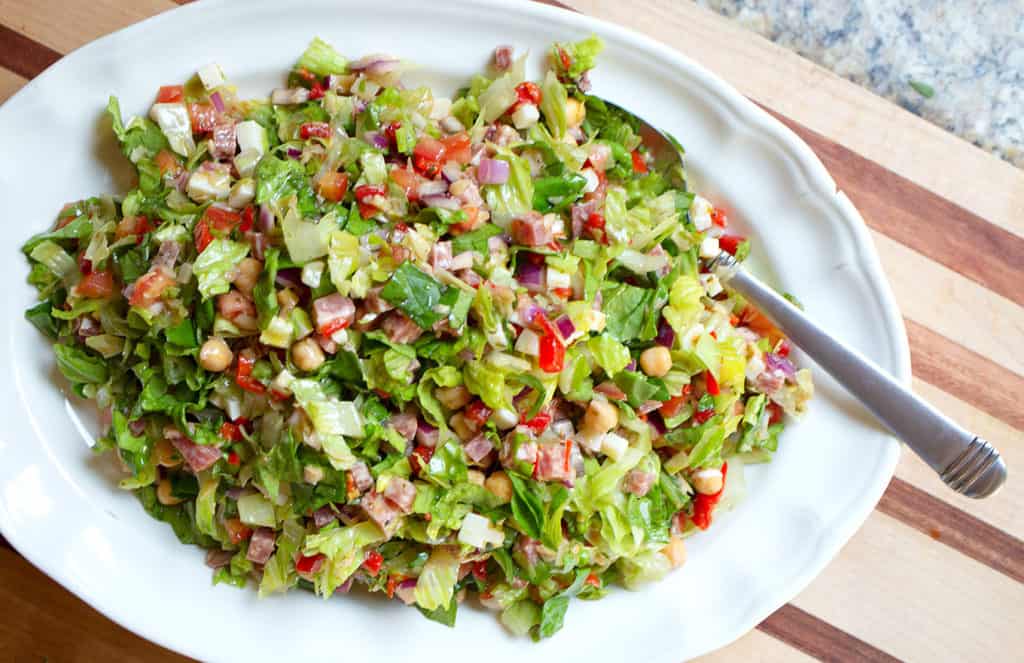
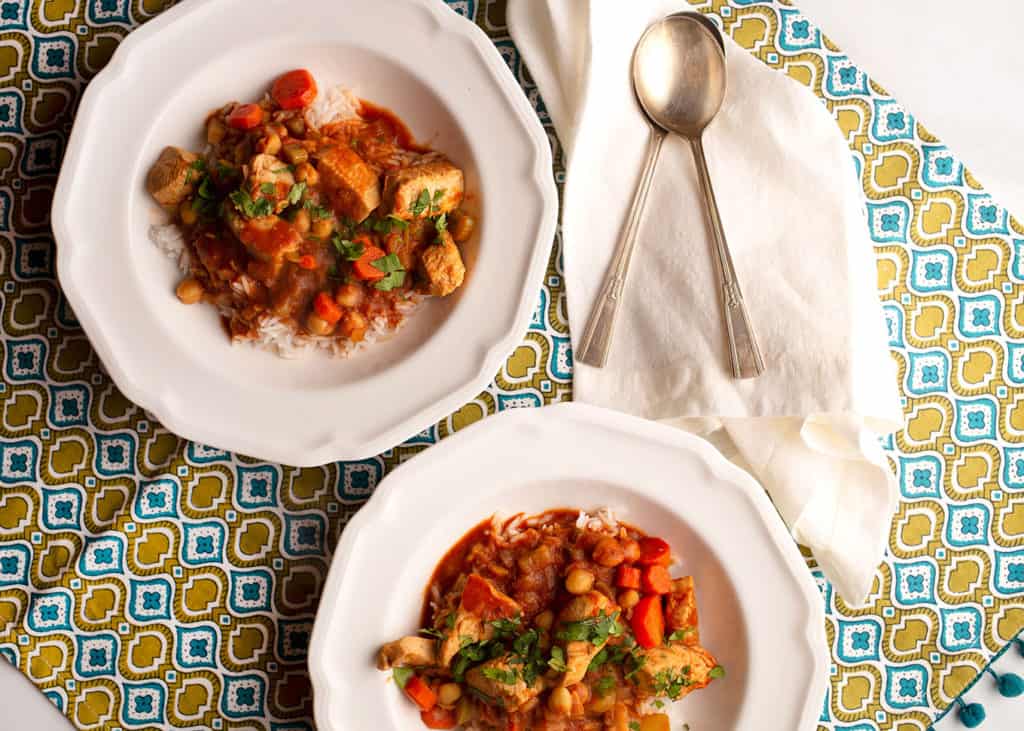
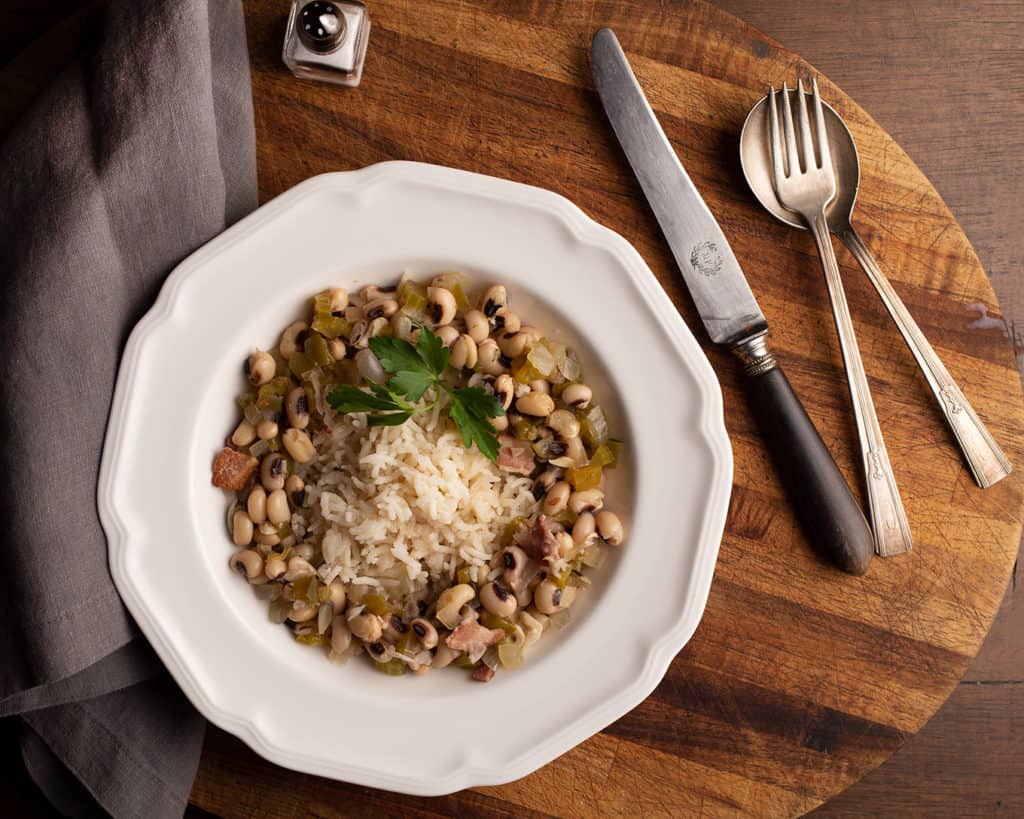

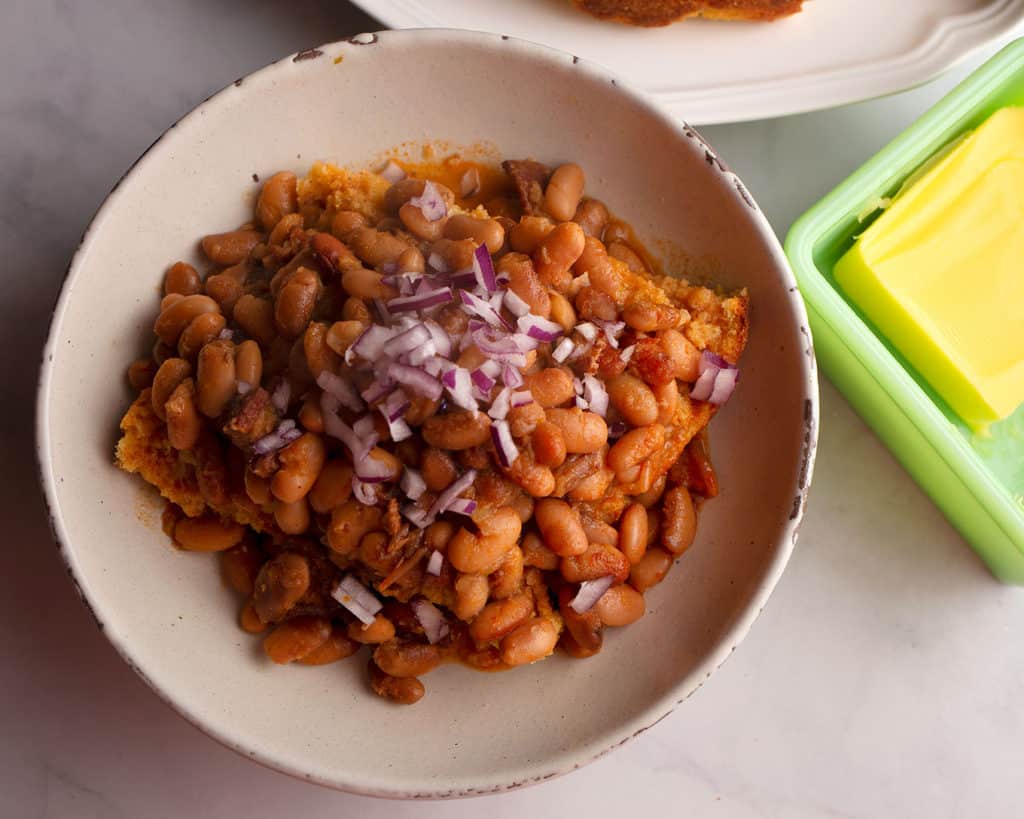
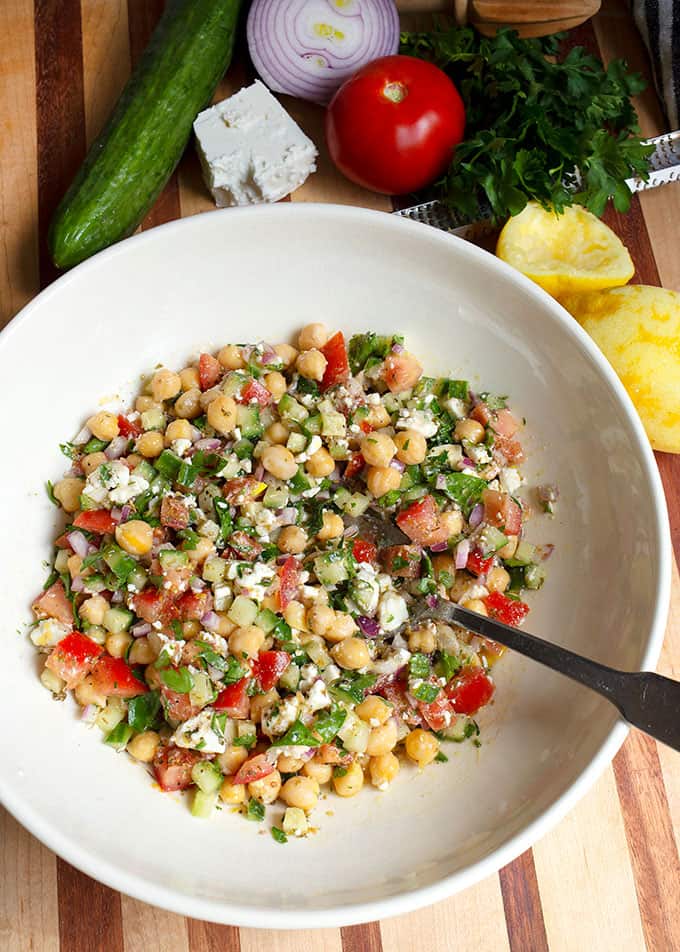
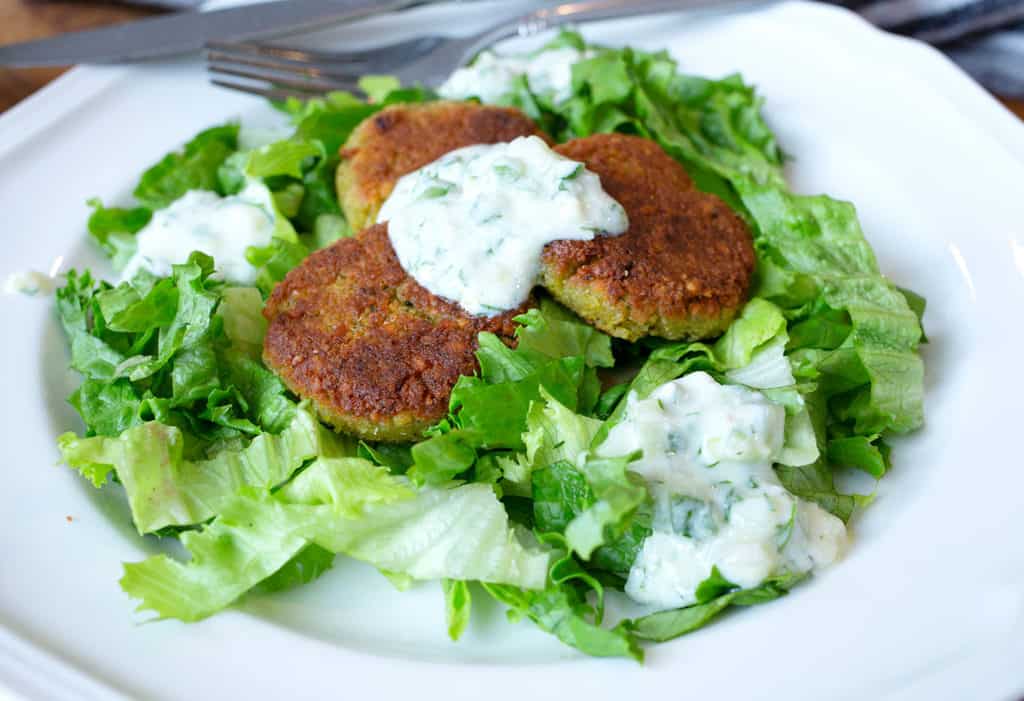
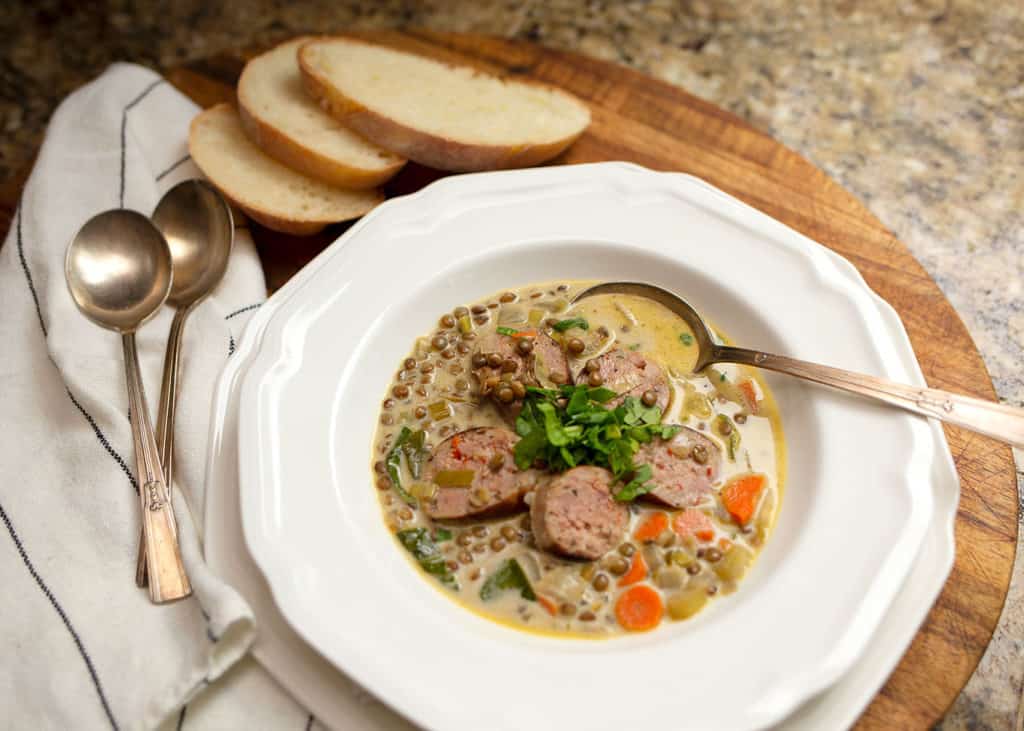
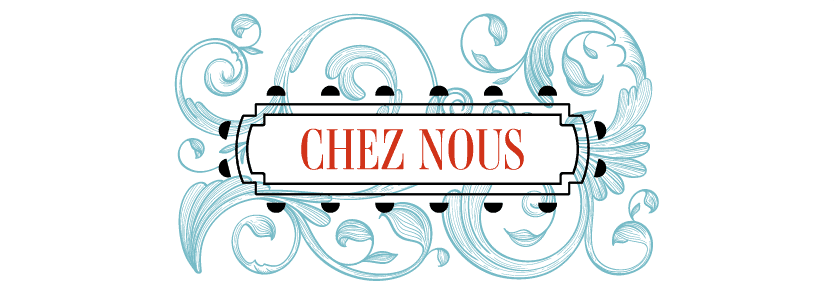
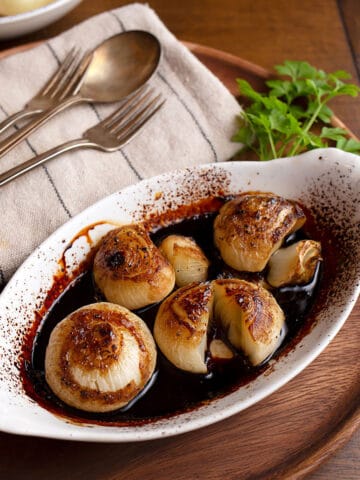
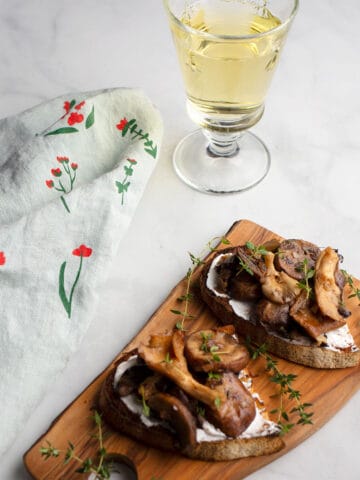
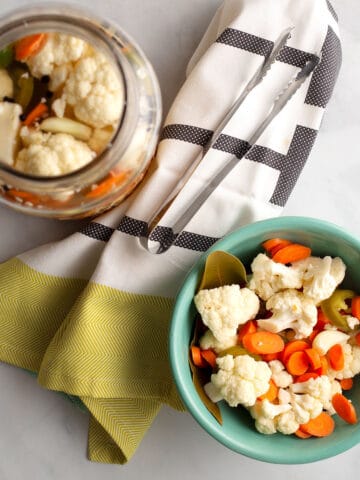
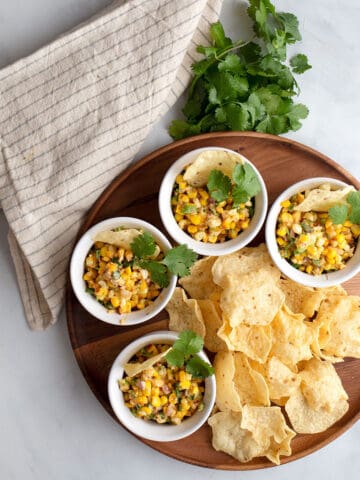
Comments
No Comments